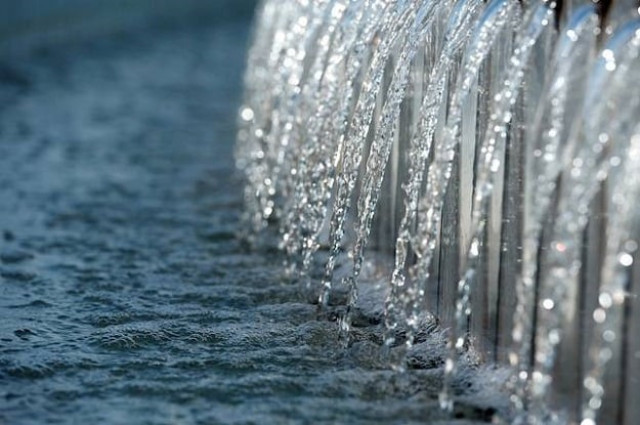Water for environmental, ecological needs to be free
Government mulls over four principles of water pricing

PHOTO: AFP
According to a draft of the National Water Policy, the impact of climate change like intensification of floods, erratic monsoon rains and droughts is already evident in the case of Pakistan.
Rising temperatures, which have resulted in enhanced heat and water-stress conditions, particularly in arid and semi-arid regions, will lead to reduced agriculture productivity. With higher temperatures, crops will require more water, cattle will consume more water and domestic consumption will also go up.
In this scenario, the government, in the proposed policy, says water delivery services will be made economically and financially sustainable and emphasis will be laid on the social, as well as economic, value of water.
At the delivery point, water will be realistically priced for production sectors of the economy and recovery of the entire cost will be ensured.
For social uses, the concept of affordability will be applied and for environmental and ecological needs, water supply will be free of charge. Wherever the subsidy becomes inevitable, it will be carefully estimated and the source of financing the subsidy bill will be clearly indicated.
Transboundary water sharing
In the policy draft, it is noted that a substantial part of Pakistan’s fresh water resources is generated from outside the country.
The Indus Waters Treaty provides a mechanism for water sharing with India, but the government observes that provisions for unlimited hydroelectric power development in upper catchments have the potential of threatening water availability in lower catchments during the low-flow periods.
The treaty does not provide for minimum environmental flows downstream of international boundary for eastern rivers, which has exposed the downstream population to serious environmental hazards.
Upstream developments on the Kabul River are also being planned and implemented while no formal agreement exists for sharing of the river’s water.
Under the policy, a mechanism will be established for sharing transboundary aquifers and possibility of joint watershed management including sharing of real-time information.
Food security plan
The government will frame and vigorously pursue strategies and action plans to ensure food security for the people. It will adopt the concept of ‘more crop per drop’ to enforce improved irrigation methods and practices.
Incentives may be offered to farmers for the use of this water for salt-tolerant crops. However, before its implementation, a study will be carried out to determine that by adopting this concept, saline water will not appear in the zone. Use of treated sewage will be promoted for non-edible crops.
Hydropower
The government will accord high priority to accelerated development of hydroelectric power.
It will give preference to water projects with power generation potential over those without such a potential. A matter of highest consideration in these projects will be the cost of electricity transmitted to the national grid.
Since huge investments are involved, intensive efforts will be required to secure funds from donor agencies or local sources.
Development of hydroelectric power projects on canals will be encouraged for distribution at the local level. These projects will be undertaken by the public or private sector or by community-based organisations.
The government will encourage private power producers through appropriate safeguards and incentives.
Industry
The industry, a key driver of economic growth and provider of employment opportunities, is accordingly classified as an important user of water, which will be facilitated.
The government will undertake a study for the enactment of a legislation to allow and define the use of water abstraction licences and water rates for industrial use.
Published in The Express Tribune, December 12th, 2015.
Like Business on Facebook, follow @TribuneBiz on Twitter to stay informed and join in the conversation.



















COMMENTS
Comments are moderated and generally will be posted if they are on-topic and not abusive.
For more information, please see our Comments FAQ